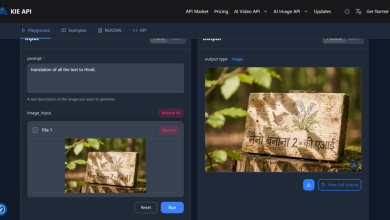
If you’ve been hearing about firms that “do AI” but aren’t sure what that really means , you’re not alone. AI is no longer just a buzzword. It’s something many organizations want to use but few know how to do it well. That’s where AI consultants step in.
Let me start with what caught my eye on Levantage AI ,they don’t sell generic AI software. They market themselves as AI Consultants for Law Firms guiding boutique and mid-sized legal practices to adopt artificial intelligence without the confusion, wasted spend, or tool sprawl. That kind of focused positioning tells me something important: AI doesn’t succeed by being everywhere, but by being deeply useful in a few domains.
What Do AI Consultants Actually Do (and Why They Matter)?
Here’s where I drop in the keyword naturally: AI Consultants are not just “people who build models.” They’re the bridge between your business and the technical world strategy, execution, adoption, governance. They translate what “AI” means for you.
At a high level, their roles include:
- Strategic visioning: Helping you figure out which AI opportunities matter most (not “AI for everything”)
- Data & systems audit: Assessing your data readiness, cleaning systems, deciding what needs to be built or connected
- Solution design & architecture: Choosing the right models, tools, APIs, and integration paths
- Change management & human workflows: Ensuring your team uses the AI effectively (and doesn’t reject it)
- Governance, compliance & ethics: Making sure you don’t break regulations, leak data, or introduce bias
In Levantage’s case, they lean heavily on legal domain expertise: they claim a deep knowledge of legal-centric AI tools and coach law firms to adopt them sensibly. That’s smart, because law firms are fragile to error , a bad tool or bad interpretation can mean ethical, regulatory, or liability issues.
How AI Consultants Really Bring Value (Stories & Angles)
I want to paint two mini-scenarios to show what separating hype from utility looks like.
Scenario 1: The Small Law Firm That Overwhelmed Itself
Imagine Carter & Lee LLP, 8 attorneys, handling contracts, client intake, litigation prep. Their managing partner sees AI and thinks: “Let’s build a fancy AI stack.” They invest, hire coders, install tools, and six months in… adoption is low. The tools aren’t tuned for legal language, nobody trusts them, and the lawyers keep doing things manually.
An AI consultant could’ve prevented that. They would have started by asking: “What’s your biggest repetitive pain? What data do you actually have? What are acceptable risk thresholds?” They’d pilot a narrow use case (say, contract clause flagging), build trust, capture learnings then expand. That’s what good consultants do.
Scenario 2: Integrating AI into Existing Flow
LexSol, a mid-sized legal tech firm, already had document management, case management, and client portals. They wanted to layer AI into intake, triage, document routing, and legal research. But their systems were messy, disconnected, with data in PDFs, email threads, spreadsheets.
An AI consultant came in, cleaned up data flows, created APIs, and built a “smart triage bot” that filters new submissions to the right team. They trained staff on prompts, error checks, and escalation. The triage bot handled 40% of intake autonomously after six months. That’s compounding value.
These are the kinds of wins AI consultants chase. They don’t aim for sci-fi breakthroughs; they aim for trustworthy, sliceable value you can scale.
Why Domain Focus (e.g. Law, Real Estate) Often Wins Over Generalists
One big lesson from Levantage.ai is their domain focus. They don’t promise “AI for every business.” They promise “AI for law firms.” That’s smart.
Why it matters:
- Domain expertise reduces risk. A consultant who understands law (terminology, ethics, case law) is less likely to propose something that backfires.
- You need fewer iterations. If someone already has templates, patterns, use cases in your field, they can move faster.
- Trust & credibility grows. Clients feel safer with someone who “gets it” not a jack of all trades.
So when you pick or be an AI consultant, niching down isn’t limiting it’s enabling.
Risks, Red Flags & What to Probe Before Hiring
Because I want you to avoid horror stories, here are things to watch out for and questions to ask:
- Black-box everything. If they can’t explain how the AI works, or you can’t see logs or audits, be cautious.
- No pilot, just big rollouts. If they want to change your entire firm at once, that’s a red flag.
- Tool churn. If they jump across 10 different models or platforms without settling, they may not know what they’re doing.
- No alignment to metrics. Ask: “How will we measure success based on cost saved, errors avoided, time gained?” If they can’t answer, run.
- Data privacy & ownership issues. Who owns the models? Do you retain control? How is data handled?
- No human override. Always require that decisions get surfaced to humans; AI isn’t omniscient.
How to Start with an AI Consultant (or become one)
Here’s a playbook whether you’re hiring or stepping into that role yourself:
- Identify your top repetitive pain – legal tech adoption, contract review, document triage, intake filtering.
- Do a data readiness audit – inventory your systems, data quality, version histories.
- Choose a consultant or small firm with domain experience (law, real estate, etc.) like Levantage does.
- Run a lean pilot (6–12 weeks max) – one building block rather than a full suite.
- Embed human checks & feedback loops – logs, overrides, audits, training.
- Measure and communicate outcomes – time saved, error rate, money earned back.
- Iterate, scale, refine – expand to the next use case when the foundation is stable.
If you’re aiming to become an AI consultant yourself, lean into a niche. Build playbooks, specialize, accumulate case templates. Demonstrate ROI quickly. That kind of reputation helps more than generalized promises.
Why AI Consultants Will Grow (and Why They Matter)
To zoom out: consulting itself is being reshaped by AI. Many traditional tasks (research, data gathering, slide decks) are automatable. But the human in-between diagnosing, contextualizing, bridging tech/business becomes more critical. IBM’s recent research shows executives expect consulting that incorporates AI.
AI consultants are becoming the fulcrum for change; they help organizations leap rather than stumble. Those who understand the domain, speak business fluently, and can manage the human side will define success.





